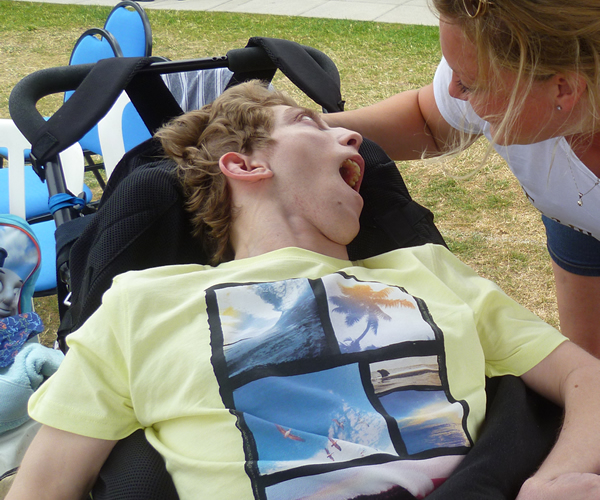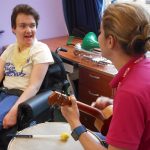Within This Issue
Being healthy makes it is easier for us to live life to the full, spend time with our friends and families and enjoy our work and our leisure time. However we know that people with learning disabilities have less good health than their non-disabled peers, and that this has a significant impact on quality of life and life expectancy. Our first article by Paul Pargeter from Dimensions sets the scene and gives a broad overview of health issues for people with learning disabilities. For people with PMLD the impact is even more profound. Avoidable differences in health status are called health inequalities, and they are unjust and unfair. Therefore it is crucial that people supporting those with PMLD understand and act on the particular health issues that people with PMLD experience. Health checks are an important general reasonable adjustment of benefit to people with PMLD. The thought provoking article by Dominic Slowie and Crispin Hebron focuses on this issue, and includes some important questions to ask.
Many people with PMLD experience detrimental changes to body shape, and thus the call for a national approach to postural care launched at the Changing our Lives ‘Got My Back’ conference in September is very important We are pleased that this issue includes articles relating to the presentations on the day from Janet Robertson and colleagues regarding research and postural care, and an article about improving postural care in Lanarkshire from Michelle Morrison and colleagues. In addition there are some great practical tips about getting a good wheelchair assessment from Helen Daley, some imaginative ideas about bringing postural care together with learning in the classroom from Martin Goodwin, and a lovely example of a sensory story from Peter Wells. Scotland are doing some great work on postural care and it is good to have an update about their overall approach to people with PMLD from Angela Henderson, as well as an update from Laurence Taggart in Northern Ireland focused particularly on health checks.
With regard to specific health problems, CIPOLD noted that ‘deaths related to the nervous system, congenital and chromosomal abnormalities and the respiratory system were all more likely to be avoided by good-quality healthcare interventions’. Therefore the article on respiratory care by David Stanley is of particular importance. We also know that people with learning disabilities die of constipation, so it is great to know about work in the central Midlands from Louisa Whait. Finally, there is a very helpful article from Lisa Donaldson at SeeAbility.
The way in which services are organised and delivered has a huge impact on people with PMLD. The article by Sadie Clarke and Rebecca Crossley uses case studies to explore the impact acute liaison nurses can have when people with PMLD are in hospital. It is also good to hear from Debbi Cook about the Southern Derbyshire PMLD service and the difference it is making to the lives of people with PMLD. Being able to measure the difference services make can be difficult, so the case study from Elaine Thomas and Gwen Moulster illustrating how the Health Equality Framework has been used with someone who has PMLD, demonstrating improved outcomes is very timely. Personal Health Budgets can lead to better outcomes for people with PMLD, so we are grateful for the article from Independent Lives, which describes how these are working in West Sussex, Hampshire and Portsmouth. Finally, there is a really practical article about how to help people with PMLD manage anxiety by Clive Smith.
In summary, this issue contains lots of helpful articles on health and people with PMLD. We hope there is something in here for everyone to take away and put into practice, improving the health, and therefore the lives of people with PMLD.
Sue Turner, Programme Lead – Learning Disabilities, NDTi (sue.turner@ndti.org.uk) & Annie Fergusson




